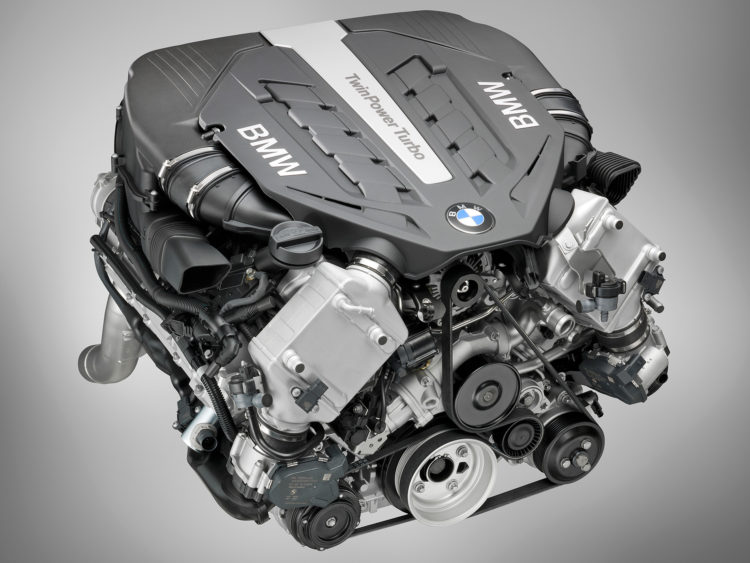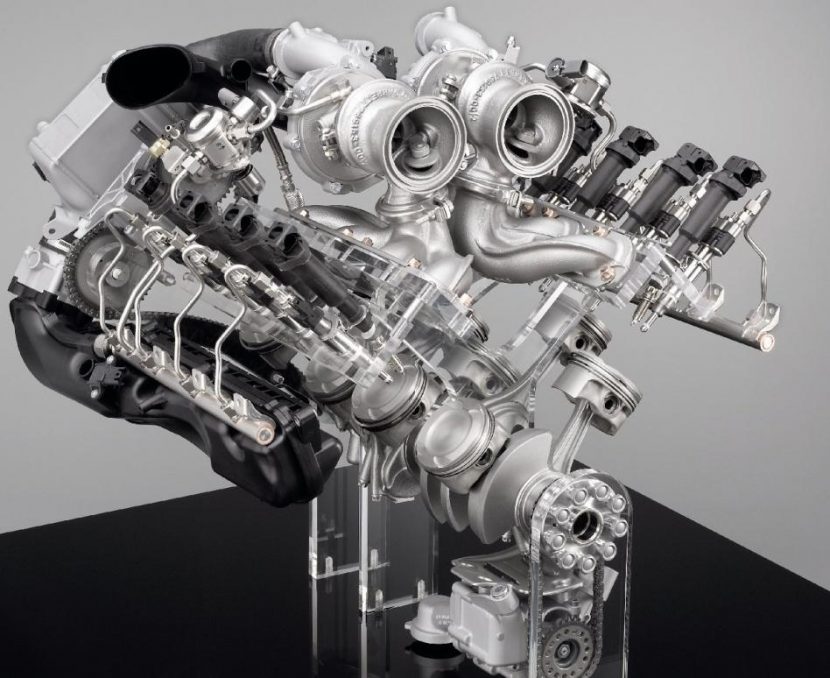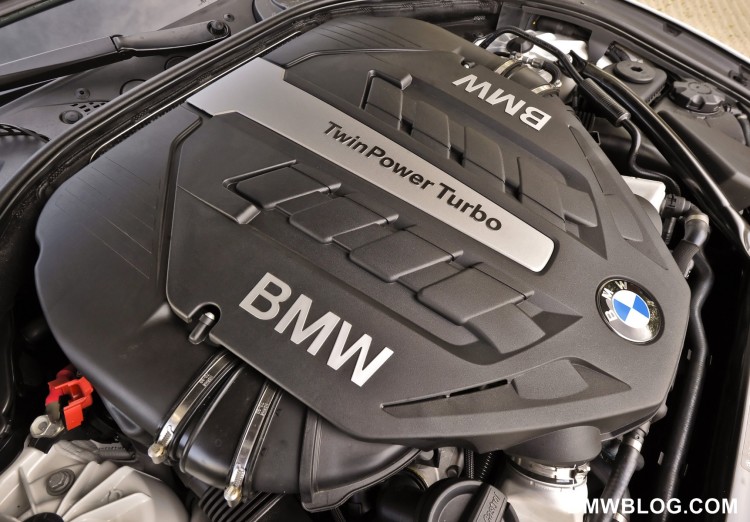The BMW N63 engine is a twin-turbocharged V8 that powers some of the most luxurious and high-performance models in the BMW lineup. It was introduced in 2008 and has undergone several updates and revisions since then. The N63 debuted on the E71 X6 and F01 750i, and would later power several cars in the German automaker’s lineup, from the 5 Series and 6 Series, to the current G05 X5, G06 X6 and G07 X7. It’s also used in the BMW ALPINA B8 Gran Coupe and the 2022 Land Rover Range Rover L460 and L461.
The N63 engine is known for its impressive power output, smooth performance and refined sound. However, it also has some drawbacks and reliability issues that have plagued many owners and mechanics. To address some of these issues, BMW started the N63 Customer Loyalty Offer and the N63 Customer Appreciation Program in 2014.
BMW N63 Technology
- Production Run: 2008 – Present
- Configuration: V8
- Bore: 89mm
- Stroke: 88.3mm
- Valvetrain: DOHC with VVT Dual VANOS
- Displacement: 4.4 L (China markets gets a 4.0 liter)
- Compression Ratio: 10:1
- Weight: 503 lbs.
- Horsepower: 402 hp – 523 hp
- Torque : 443 lb-ft – 553 lb-ft
Pros of the BMW N63 Engine
Power
The main advantage of the BMW N63 engine is its power. The engine can produce from 402 horsepower (N63B44O0) to 523 hp (N63B44T3), depending on the variant and tuning. This makes it one of the most powerful engines in its class, and allows the cars equipped with it to accelerate from 0 to 60 mph in under 5 seconds. The engine also has a smooth and linear power delivery, thanks to the twin-scroll turbochargers that reduce turbo lag and improve responsiveness.
Fuel Efficiency
Another pro of the BMW N63 engine is its fuel efficiency, even though here your mileage might vary. Despite its large displacement and high output, the engine can achieve decent gas mileage, thanks to some innovative technologies such as direct injection, variable valve timing, cylinder deactivation and stop-start system. The engine can also run on regular unleaded gasoline, unlike some of its competitors that require premium fuel. Of course, the fuel consumption can vary depending on several factors, such as driving habits, road conditions, and vehicle maintenance. However, according to official EPA estimates, the BMW 750i xDrive with the N63tu engine has a combined fuel economy rating of 18 miles per gallon (mpg) and a city/highway rating of 15/22 mpg.
Smooth and Great Sounding
Despite its power, the N63 operates with remarkable smoothness and refinement. The engine is well-balanced and generates minimal vibration, ensuring a comfortable driving experience across multiple applications.The engine also has a distinctive and refined sound that matches the character of a turbo V8. The exhaust note is a deep, throaty rumble that’s especially pleasing at higher revs.
Cons of the BMW N63 Engine
Reliability
The main drawback of the BMW N63 engine is its reliability. Early versions of the N63 (2008-2013) suffered from several well-documented reliability issues, including high oil consumption, turbocharger failures, and valve stem seal leaks. Later iterations (N63TU onwards) addressed some of these problems, but they’re not immune to issues altogether. Customers also reported other various problems and failures, such as coolant leaks, carbon buildup, timing chain issues and fuel injector failures. Some of these problems can be very expensive and difficult to fix, and may require extensive repairs or replacements. The engine also has a high maintenance cost, as it requires frequent oil changes, spark plug changes, coolant flushes and other services.
Complexity
Another con of the BMW N63 engine is its complexity. The engine has a lot of components and systems that work together to deliver its performance and efficiency, but also make it more prone to malfunctioning and breaking down. The engine also requires special tools and equipment to service and repair, which may not be readily available at some shops or dealerships. The engine also has a high sensitivity to poor quality fuel, oil and coolant, which can cause damage or degradation over time.
Reliability of the BMW N63 Engine
The N63’s reliability is a mixed bag. Early versions (2008-2013) are notorious for being problematic, with the aforementioned issues significantly impacting ownership costs. BMW addressed these issues with subsequent revisions, but the N63 still isn’t a paragon of reliability compared to its competitors. Therefore, the reliability of the BMW N63 engine is hard to quantify, as it depends on many factors such as the age, mileage, condition, maintenance history and driving habits of the vehicle.
However, based on some online sources and forums, the average lifespan of the N63 engine is around 100,000 miles, with some owners reporting more or less mileage before encountering major problems or failures.
Important Note
The first generation of the N63 engine (N63B44O0) was produced from 2008 to 2014, and was used in models such as the 550i, 650i, 750i, X5 xDrive50i and X6 xDrive50i. This generation of the engine had some of the most severe and common problems, such as oil leaks from the upper oil pan gasket, valve cover gasket and turbocharger oil lines; coolant leaks from the water pump, thermostat housing and radiator; excessive oil consumption due to faulty piston rings; carbon buildup on the intake valves due to direct injection; timing chain stretch or breakage due to insufficient lubrication; fuel injector failures due to high pressure; valve stem seal failures due to wear; and turbocharger failures due to overheating or oil starvation.
The second generation of the N63TU engine (N63B44O1) was produced from 2014 to 2019, and was used in models such as the F01/F02 750i, F07 550i GT, F10 550i, F15 X5, F16 X6, F06/F12/F13 650i. Another technical update N63TU2 (N63B44O2) arrive in 2016 and was used in the G11/G12 750i and in the G30/G31 M550i.
In 2018, BMW delivers a new update: N63TU3 (N63B44M3) which powered the G05 X5 and G07 X7. The final update is called the N63B44T3 (N63TU3) and powers the following models:
- 2018– G14/G15/G16 M850i xDrive
- 2019-2022; G11/G12 750i/750Li sDrive/xDrive
- 2020-2023; G30/G31 M550i xDrive
- 2020-2023; G05 X5 M50i
- 2020-2023; G06 X6 M50i
- 2020-2022; G07 X7 M50i
- 2021– G14/G15/G16 Alpina B8 Gran Coupe
- 2022– Land Rover Range Rover (L460)
- 2022– Land Rover Range Rover Sport (L461)
Tips on How to Maintain the BMW N63 Engine
The BMW N63 engine is a sophisticated and powerful engine that requires proper care and maintenance to ensure its longevity and performance. Here are some tips on how to maintain the BMW N63 engine:
General Maintenance:
- Frequent Oil Changes: Don’t follow the automaker’s recommended oil change intervals. Aim for every 5,000 miles or less, using only high-quality synthetic oil approved for the N63.
- Regular Inspections: Schedule annual inspections by a qualified mechanic familiar with the N63 engine. They can identify potential issues before they become major problems.
- Watch for Leaks: Keep an eye out for oil leaks, especially around the valve cover gaskets and turbochargers.Early detection saves money and prevents engine damage.
- Drive it Regularly: Avoid short, stop-and-go trips. The N63 thrives on longer drives at highway speeds to properly warm up and burn off carbon deposits.
- Don’t Skimp on Quality: Use only OEM or high-quality replacement parts for any repairs or replacements.Cheap parts can cause more problems in the long run.
Specific N63 Concerns:
- Turbochargers: Regularly check for signs of turbocharger failure like excessive oil consumption, blue smoke from the exhaust, and loss of power. Consider preventative maintenance like cleaning the carbon buildup in the intake valves.
- Direct Injection: Carbon buildup on the intake valves is a common issue in direct injection engines. Consider walnut blasting every 50,000-75,000 miles to remove the buildup and improve performance.
- High-Pressure Fuel Pump (HPFP): Failure of the HPFP can leave you stranded. Listen for a high-pitched whine from the fuel pump, especially during cold starts. Replacing the HPFP proactively can prevent sudden breakdowns.
- Water Pump: Leaks from the water pump can lead to overheating and engine damage. Be mindful of coolant levels and listen for unusual noises from the water pump area.
Additional Tips:
- Install a catch can to reduce carbon buildup in the intake system.
- Use a high-quality fuel injector cleaner regularly.
- Avoid aggressive driving and excessive idling.
- Consider extended warranty coverage for peace of mind.



